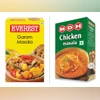The central government has asked MDH and Everest to take “corrective measures”, weeks after spices produced by these companies were recalled by Singapore and Hong Kong for allegedly containing pesticide ethylene oxide (EtO) beyond permissible limits. (In the case of Hong Kong, EtO in food is prohibited.
To investigate the recall, the Spices Board of India is testing each spice sample of the two companies and inspecting their production facilities to ensure that spices are produced and exported in accordance with prescribed standards, two government officials said. The companies have been asked to explain what resulted in the recall.
Queries emailed to MDH and Everest Spices didn’t elicit any response till press time.
Inspection entails whether firms met the maximum residue limit for EtO, and how storage, transportation, and testing are being done for the spices exported. “We have carried out sample testing at both these companies’ (premises). We are working with them and have asked them to take corrective action (which will be monitored by the Spices Board),” one of the officials said.
More From This Section
EtO is often used in the food industry as a fumigant to reduce the bacterial load, yeast, and mould. However, every country has a different tolerance level in EtO use. For instance, the maximum residue limit for EtO in the European Union is 0.02-0.1 mg per kg, while that of United States and Canada is 7 mg per kg.
India has no set limit. It has also been found out that the spices were meant for a destination where EtO use is acceptable. But, consignments were erroneously sent to Hong Kong.As many as three rounds of consultation have been done with firms on the use of EtO in food items, one of the officials said, adding that the government told them of the requirements in each jurisdiction since maximum residue standards keep changing.
Separately, the Food Safety and Standards Authority of India is collecting samples and testing them on a large scale.
According to government officials, in FY24, 99.8 per cent of around 1.4 million tonnes met the quality requirements of different countries. On the other hand, 0.73 per cent of India’s imported food consignment were non-compliant.
Earlier this month, the Spices Board called for mandatory pre-shipment sampling and testing of EtO for Singapore and Hong Kong for six months. The decision will be reviewed thereafter.
Guidelines were issued to all exporters to avoid EtO contamination — covering all stages of the supply chain — sourcing, packaging, transportation, testing.
Periodic sampling by the Spices Board, based on which corrective measures were enforced, will also be done.
(Sharleen D’Souza contributed to the story)

)
